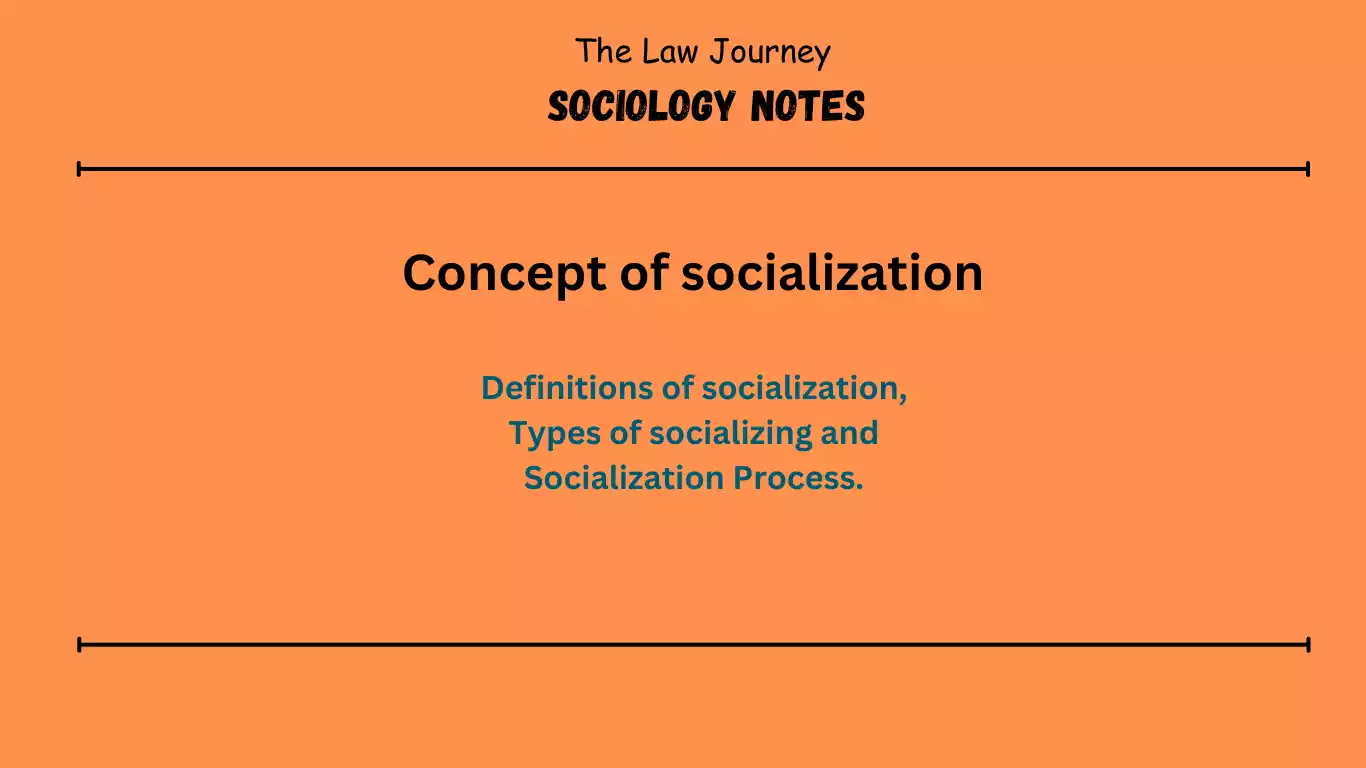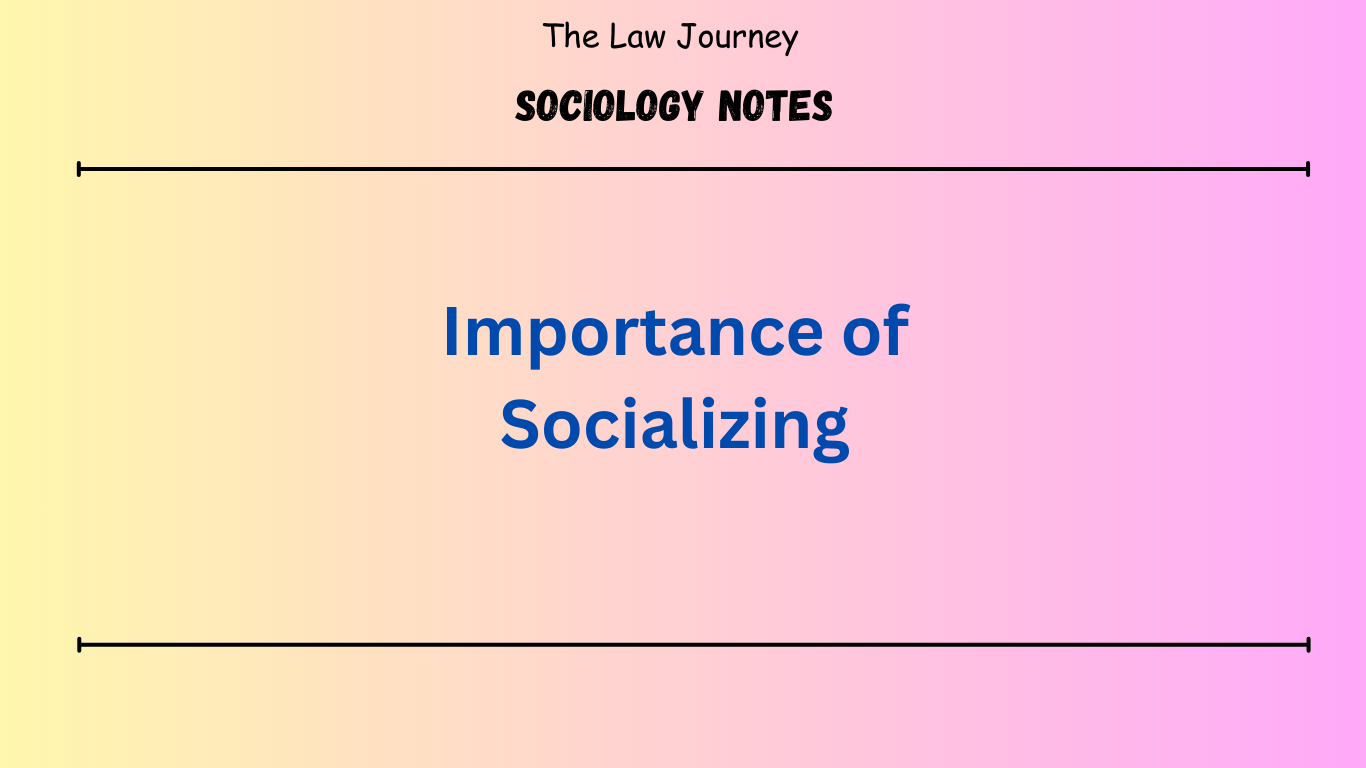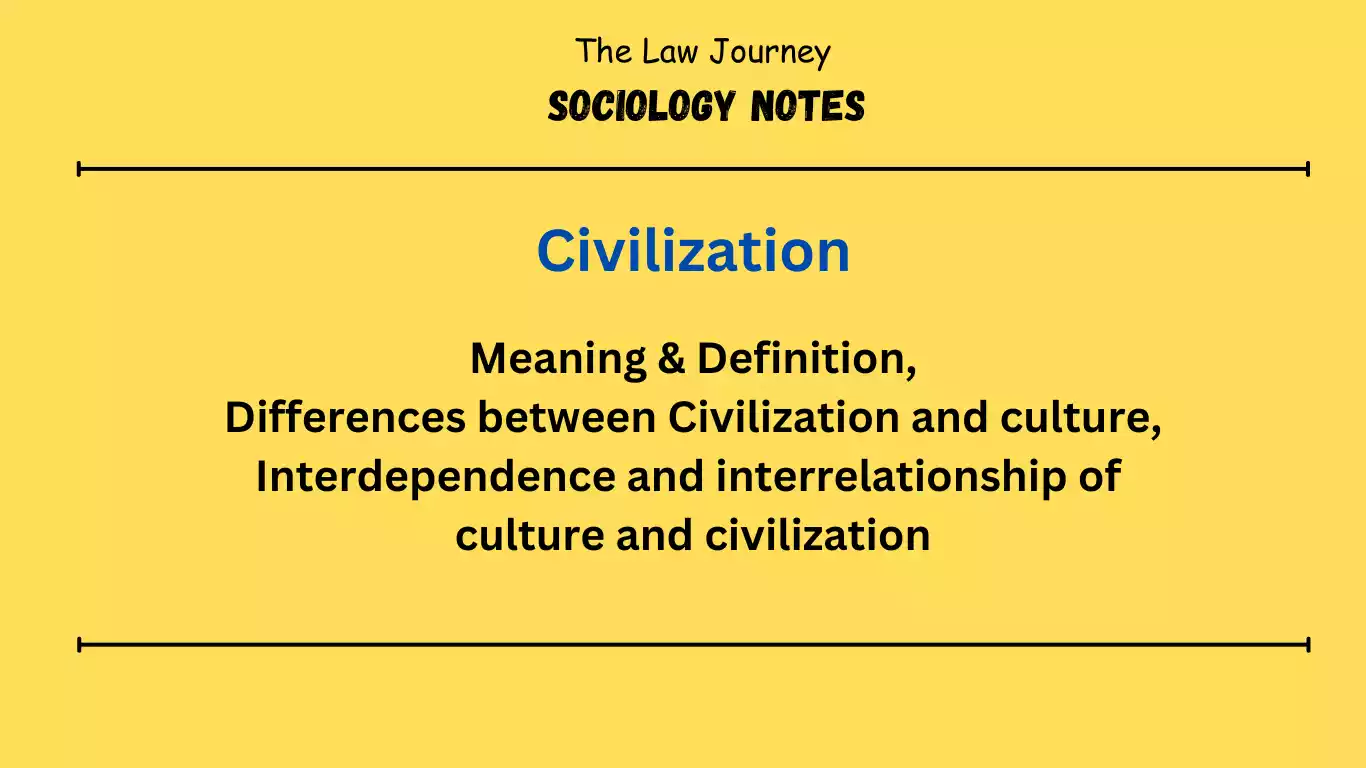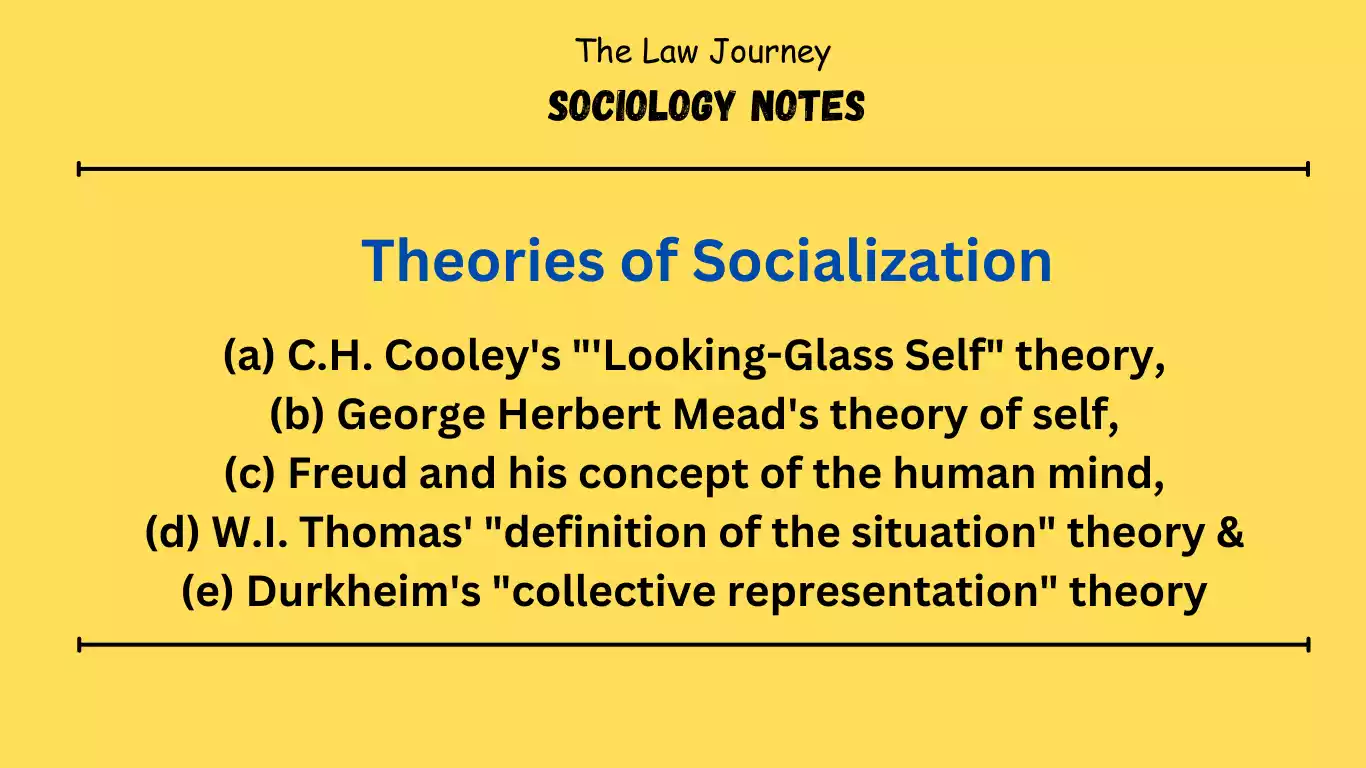Concept of socialization – Human beings are not only social, but also cultural. It is a culture that provides men with opportunities to develop their individuality. Self-development is not an automatic process. Each society prescribes its own methods and means of social training so that its newborn members can develop their own personality. This social training is called “socialization.”
The socialization process is culture dependent. Since every society has its own culture, the socialization process also differs from society to society. Furthermore, the same culture and the same form of socialization may have different effects on the personality development of members of the same society. Therefore, culture does not necessarily produce stereotypical personalities. The socialization process creates room for individuality.
However, we cannot ignore the fact that culture sets limits on personality development. This chapter briefly examines the interaction of culture and socialization in the conditioning of human personality, with particular emphasis on the phenomenon of socialization. Most human behavior is instinctual. Rather, human behavior is “learned” behavior. Human children are born as biological organisms with animal needs. He gradually forms as a social being in society and learns social behavior and emotions.
Without this process, society would be unable to survive. Individuals cannot be individuals, and without them there is no culture. This process of developing and shaping the personality of human infants is called “socialization.”
Definitions of socialization
(i) Bogardus: Socialisation is the “process of working together, of developing group responsibility, or being guided by the welfare needs of others’ ‘.
(ii) W.F. Ogburn : “Socialisation is the process by which the individual learns to conform to the norms of the group”.
(iii) Peter Worsley explains socialisation as the process of “transmission of culture, the process whereby men learn the rules and practices of social groups”.
(iv) Harry M. Johnson understands socialisation as “learning that enables the learner to perform social roles”. He further says that it is a “process by which individuals acquire the already existing culture of groups they come into”.
(v) Lundberg says that socialisation consists of the “complex processes of interaction through which the individual learns the habits, beliefs, skills and standards of judgement that are necessary for his effective participation in social groups and communities”.
Types of socializing
Ran Robertson mentioned his four types of socialization in his book Sociology (1977). According to him, the socialization that a person experiences throughout their life is one or more of his four different types: primary socialization, anticipatory socialization, developmental socialization, and resocialization.
(i) Primary socialization
This is the most essential and basic type of socialization. It occurs during the first years of a newborn’s life. It focuses on teaching language and cognitive skills, internalizing cultural norms and values, and building emotional bonds. And value other roles and perspectives.
“Internalization of norms” is the most important aspect of primary socialization. Norm internalization is the process by which social norms become part of an individual’s personality. Human children have no sense of right or wrong, desirable or undesirable, moral or immoral. Through trial and error, through direct and indirect observation and experience, the child gradually learns the norms of right and wrong behavior. Socialization agents enhance children’s learning through rewards and punishments, approval and disapproval.
(iI) Anticipatory socialization
Men not only learn about the culture of the group to which they directly belong. He may also learn about the culture of groups to which he does not belong. This process, in which men assimilate into a group’s culture with the expectation of joining it, is called “anticipatory socialization” by sociologists such as Merton. Those who want to join the military can first train their bodies through gymnastics and learn military etiquette in order to become one with the soldiers.
People can socialize into groups they already belong to or groups they want to join. Socialization is not a process that only occurs in early childhood. On the other hand, it occurs at different times and in different places throughout the lifespan.
(iii) developmental socialization
This type of learning builds on the outcomes of primary socialization. “As adults move into new situations, such as marriage or a new job, they build on previously acquired skills and knowledge. These require new expectations, duties, and roles. New learning is added to and mixed with old knowledge in a smooth and continuous process. “Development” – Lan Robertson
(iv) Rehabilitation
Individuals not only change their roles within groups, but also their membership groups. In some cases, it may be necessary to “resocialize,” or “unlearn learned patterns and replace them with new ones.” Such resocialization typically occurs when social roles change fundamentally. This can also occur in times of rapid social mobility. for example,Newly married housewives may be forced to become prostitutes in brothels. In this case, the social role of the individual has fundamentally changed.
Socialization Process
Every person tries to adapt to the conditions of his social environment. This adaptation process is itself socialization. Social order is maintained primarily through socialization. Individuals learn to adapt to group norms. This helps maintain group order. Socialization is the process that transforms the human animal into a human being, and the process that transforms a biological being into a social being. “No one fully understands this process,” said Kingsley Davis. “It’s still as mysterious as photosynthesis or organic aging.”
Direct socialization begins only after birth. Human beings as living organisms have some internal factors or forces that limit or support socialization. These internal forces associated with the socialization process are (i) reflexes, (iii) impulses, (iv) skills, and (v) understanding and education. Here we will consider the phenomenon of socialization itself. 100210 1
Socialization is a continuous process
Socialization is the process of introducing an individual into the social world. It consists in teaching the culture that he must acquire and share. Socialization is social learning. This learning is continuous rather than intermittent. The more you try to learn, the more you have to learn. Perfection is rarely achieved in social learning. The process of socialization continues throughout life. We must not believe that there is a learning phase in which a person learns everything about his or her group and then stops learning.
Man belongs to different groups at different stages of life. As these groups change, we must learn new rules and behavior patterns.
Moreover, we don’t stay in the same role forever. Although we are part of a family throughout our lives, we constantly change our roles within the family by taking on new roles or relinquishing or changing old ones. We begin as children, go through adolescence, become adults, get married, become parents, reach middle age, retire, and grow old. Every role comes with new behavioral patterns that you must learn. Therefore, we are involved in the process of socialization throughout our lives. Even at death’s door, we are socialized. For example, hospital staff have ideas about what a “good” way of dying looks like. They try to introduce dying patients to the “correct” way to die.
Timed adjustment
Timing is important when it comes to socializing. Without socialization, physical maturity alone cannot produce a perfect human adult. Socialization and maturation can occur simultaneously during the first years of the life cycle. What we try to teach our children has different effects depending on the child’s level of maturity. For example, you can’t expect your child to calm down before he or she develops sustained inhibitions.
Socialization and the development of the “self”.
Central to the socialization process is the emergence and gradual development of a “self” or “ego.” In our relationship with ourselves, our personality is formed and our mind becomes functional. As the child learns about the sensory world around him, the concept of self begins to emerge.
Every person living in any society has a sense of self. When children are born, they are not conscious of themselves or others. He has no behavioral mechanisms that would make an individual part or member of a group. At birth, children are completely unaware of themselves and their relationships with others. Children learn these relationships through the process of socialization.
“The self is social”
The word “self” is often used to mean “self-image.” Some authors, such as G. Murphy, believe that the self is simply a person’s idea of themselves as a whole. However, G. H. Mead would rather describe himself as purely “social.” Indeed, the self develops through children’s communication with others. The concept of self develops in relation to the concept of other things. He learns that they are different and that he too has a personality. Knowing your name and using pronouns like “T,” “Me,” and “Myself” can help in the process of self-discovery. Young children’s responses to questions such as What's your name?'' andWhose boy are you?” emphasize the idea of self in relation to others.
Related Post |
what is socialization ?
“Socialisation is the process by which the individual learns to conform to the norms of the group”.
Types of socializing ?
there are four different types of socializing: primary socialization, anticipatory socialization, developmental socialization, and resocialization.
Reference Books | Concept of socialization
- Introduction to Sociology by Anthony Giddens
- Handbook of Indian Sociology by Veena Das
- C.N. Shankar Rao – Principle of sociology with an introduction to social thoughts
- A Dictionary of Sociology by John Scott
- Sociological Theory by George Ritzer
- Social Change in Modern India by M N Srinivas

















